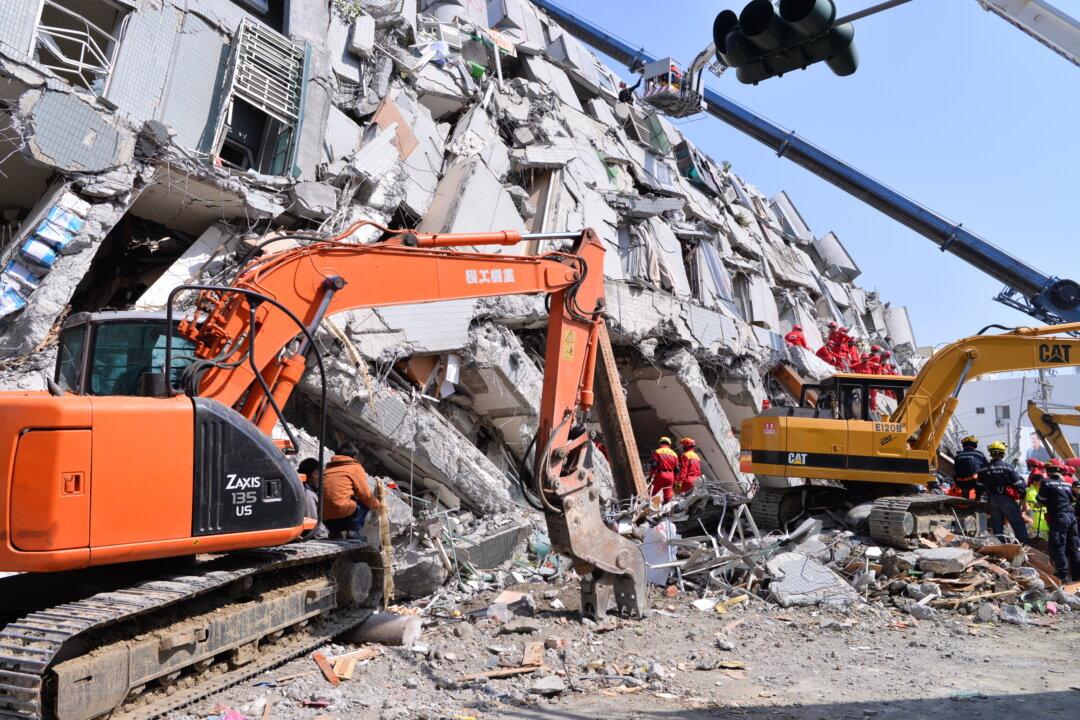The earthquake that struck southern Taiwan on Feb. 6 has generated sympathy from around the world—but it has resonated with people in China in particular, effectively holding up a mirror to their own society in showing how corruption is dealt with in a democratic society.
Some of the most memorable images to emerge in the wake of the quake in Taiwan were of collapsed buildings whose walls had been packed with tin cans—an obvious instance of corruption on the part of the developers.
An earthquake in Sichuan Province, China, in 2008, revealed similar problems of corruption in buildings, as schools collapsed and crushed thousands of children.
But the way the two societies dealt with the problem differed greatly.
On Feb. 10, a local court in the southern Taiwanese city of Tainan brought into custody Ling Minghui, the developer of the now toppled Wei-guan Golden Dragon Building, and two other former executives, without bail. They were suspected of negligent homicide, reported Taiwanese media.
Pictures of Ling appeared on the front page of four biggest newspapers in Taiwan—Apple Daily, Liberty Times, United Daily and China Times. Though an investigation would determine if Wang and his executives were guilty of any crime, he was branded a “vile developer” on the front page of the papers.
Ling’s detention quickly drew attention of Internet users on Sina Weibo, China’s Twitter-like service. Many were full of praise for the quick legal action—“what a democratic country,” one said; “the Republic of China is the hope of mankind,” said another; and “the Chinese Dream is in Taiwan,” a third said.
The “Chinese Dream” is a term crafted by Party propaganda officials referring to a set of ideals and aspirations for China, though it is often derided as vacuous.





